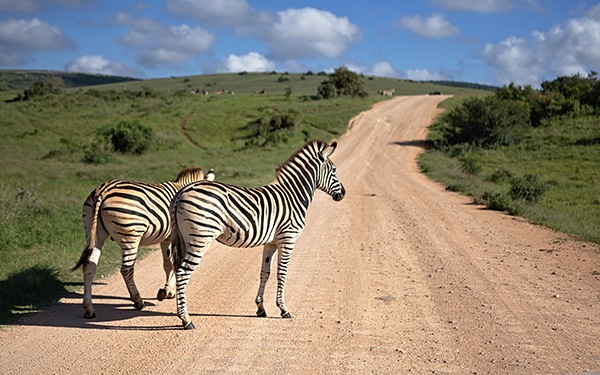Considering moving from the UK to South Africa? Make sure that you read this guide first.
There are thought to be more than 212,000 Brits currently living in South Africa, and they have made the move for good reason.
This vast country is one of the most beautiful in the world, with awesomely diverse scenery of majestic mountains, pristine beaches, lush vineyards, bush land and prairies teeming with wildlife, quaint towns and villages, and vibrant cities.
The climate is warm and sunny and perfect for countless outdoor activities.
English is widely spoken, the South Africans are notoriously friendly, and the British pound goes impressively far in the national property market.
Eating out is very affordable and the quality of fresh produce is astounding.
South Africa offers an incredible quality of life for British expats — here’s our guide to all you need to know about relocating to this amazing country…
Contents
South Africa Visa Requirements for Brits
Visiting
Brits visiting South Africa must have a passport which is valid for a minimum period of 30 days from the date of exit from South Africa.
However, some immigration officials still request that a passport should have at least 6 months validity on the date of entry to South Africa, so it’s best to meet this requirement just to be sure to avoid any problems.
Your passport should have at least 2 blank pages when you present it at immigration to enter or leave South Africa.
If the duration of your stay in South Africa (whether for business or pleasure) is no longer than 90 days, you do not require a visa. However if you’re intending to stay longer than 90 days you will need to apply for a temporary residence permit in order to live and work in the country.
The temporary residence permit will cover you for an extended period in South Africa of more than 3 months but no more than 3 years.
Applications for a temporary residence visa should be made at your nearest South African embassy before you travel to South Africa.
Working
A temporary residence permit is necessary if you intend to settle and work in South Africa.
There are 12 different types of temporary residence permit, each of which is suitable for different groups of people based on certain factors such as age, occupation, and length of intended stay.
The permits most relevant to British expats include:
- Study permits for those who intend to study at any level in South Africa
- Business permits for international business people looking to invest in South African businesses or setting up a new enterprise in the country themselves
- General work permits for those with general qualifications looking to work in South Africa – this type of permit will apply to most people
- Critical skills work visa for expats with skills and qualifications that are regarded as critical or exceptional by the South African government
It is recommended to apply for your residence permit before you travel wherever possible.
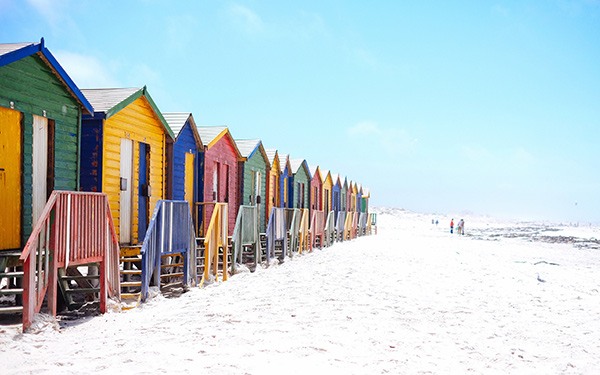
Permanent Residency
Making the leap to permanent residency can take time (up to 18 months) and cost money.
There are 7 different types of permanent residency permits available to expats, including relative’s permits for biological relatives of South African citizens, spousal & life partner permits for married couples where one half of the couple is South African, five years continuous work permits for those who have already lived and worked in South Africa for 5 years, business permits, and retirement permits.
When applying for any kind of permit in South Africa it is always best to be well prepared as it will save you time and make things run more smoothly.
Essential documents that you will need to have ready include passport photographs, a passport with more than 6 month left to run, birth certificate, a medical certificate, radiology certificate, and police clearances from the past 6 months, and a marriage certificate if you have one.
Way of Life in South Africa
Lifestyle
Thanks to the blissful climate, the lifestyle in South Africa has a strong focus on the great outdoors.
This is a country where you can experience real adventure, searching for the big 5 in the bush or on the plains, diving with sharks, or simply playing a few rounds of golf or lazing on the beach.
The social scene is equally exciting, and the South Africans are very laid back and have a warm and friendly disposition towards newcomers.
Barbecues here are known as braais, and they play a big part in the social life of the locals and you can expect to be invited to chow down and get to know your neighbours.
This is an extremely cosmopolitan country which is racially and culturally diverse. Cities boast chic restaurants and glitzy shopping malls, and are home to extensive expat communities.
However there is a dark side to this luxurious lifestyle.
In some areas of the country poverty and crime are rife, and this affects citizens and businesses. The national theft and murder rates have shown a rise in 2018, with Nyanga, in Cape Town being the most dangerous place in South Africa, and rural crime has also risen slightly.
Despite advances, racial tensions still persist in South Africa, and it is prudent to exercise due care and caution while living here.
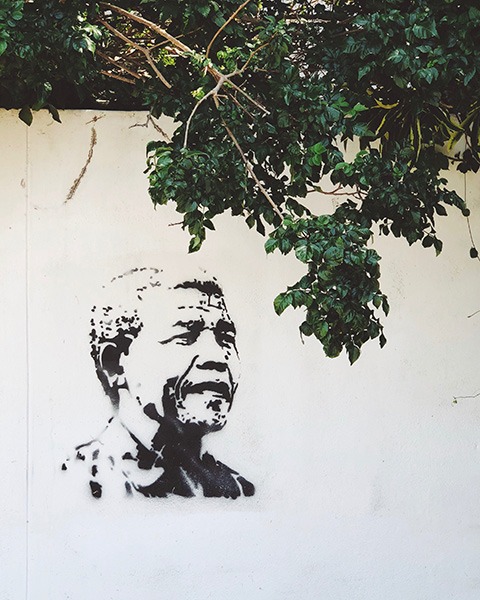
Getting Around
South Africa is a big country, and the best way to explore it is by car as it offers the most freedom.
That said there is also an excellent travel infrastructure, with 15 regional airports, several bus companies with routes all around the country, and a good train network.
Train travel is relatively slow but comfortable, and offer the opportunity to admire stunning scenery along the journey.
Tourist trains feature sleeper accommodations for 2 to 4 people with shared bathrooms and showers.
Buses are an affordable way to travel, and are equipped with toilets and air conditioning. Fares vary according to the distance covered and time of year, with peak fares corresponding approximately to school holidays.
Families with children get their own private compartment on the train, and under-5s travel free.
Minibus taxis are a popular way to get around, cover nearly everywhere in the country, and cost no more than taking the bus an equivalent distance.
However, there are problems associated with them such as dangerous driving, fights between rival taxi companies, and being vulnerable to criminal attack when parked up.
Private taxis are a safer way to get around — particularly in cities where crime rates are higher.
Domestic flights are the best way to travel if you have long distances to cover and are short on time. South African Airways offers the best flight options, and there are often money saving special offers available.
Driving in South Africa
Whether it’s in your own transport or by rental car, driving in South Africa offers the most freedom when travelling the country, and it’s the best way to reach the more remote areas.
The South African road system is excellent, with well maintained highways, and vehicle rental is relatively cheap.
Unlike in the UK, petrol stations are manned by pump attendants who fill your tank for you and offer to clean your windscreen and check your oil and water levels as part of the service for a small tip.
Just like the UK, South Africans drive on the left side of the road.
It pays to stay safe and be aware of other drivers at all times. Car accidents are more common in South Africa, so keep your wits about you and maintain distance between yourself and others.
Hide valuables out of sight when parked up as there is a small risk of car jacking. When parked up in cities you’ll often see car ‘guards’ keeping an eye on the vehicles who will protect your car for a small tip.
Weather in South Africa
Due to its vast size and diverse landscape, South Africa has a varied climate.
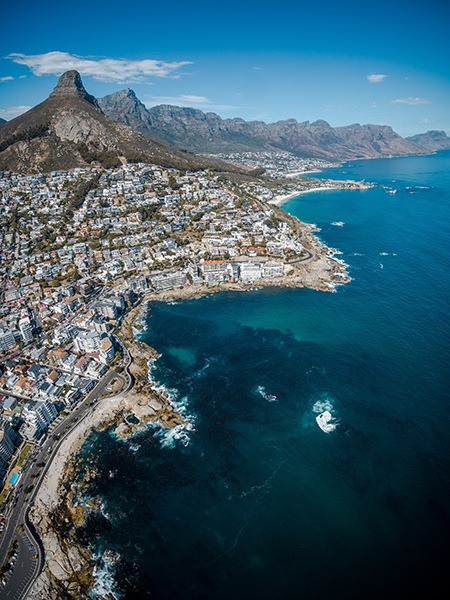
The south west of the country has a more Mediterranean climate with mild, rainy winters and warm, sunny summers. and the north east is more subtropical.
Temperatures however are fairly similar from north to south, with an annual average of around 17ºC, and summers in the mid 30s.
The large plateau in the middle of the country tempers the summer heat but cools the winter nights; and the east of the country experiences more rainfall than the west.
On the whole, South Africa is a relatively dry country with good year round temperatures but with chilly nights during winter.
Cost of Living in South Africa
Lifestyle
The cost of living in South Africa isn’t as cheap as it used to be, but it is still very reasonable by UK standards.
A struggling economy, high levels of unemployment and the fluctuating value of the Rand have pushed prices up slightly — particularly for fuel and utilities — and there is a marked difference between rich and poor across the country.
Nevertheless, average consumer prices in the United Kingdom remain almost 63% higher than in South Africa.
Food –- and especially wine –- is such good value in South Africa, and eating out is very affordable.
Groceries and public transport are also cheaper than in the UK, but cars, mobile phones and electrical items are a little more expensive.
Rent
As with any country, rental costs in South Africa vary depending on location.
Rental prices are more expensive in the cities, along the tourist routes and on the coast.
Both short-term and long term rentals are widely available and the standard of accommodation is quite high. Renting a property is straightforward, but you may need to prove that you have sufficient monthly income to cover the rent.
Even in the cities in South Africa rental prices can be almost half the price of an equivalent property in the UK, and most expats will probably be able to afford renting a decent property in one of the many gated communities found throughout the country.
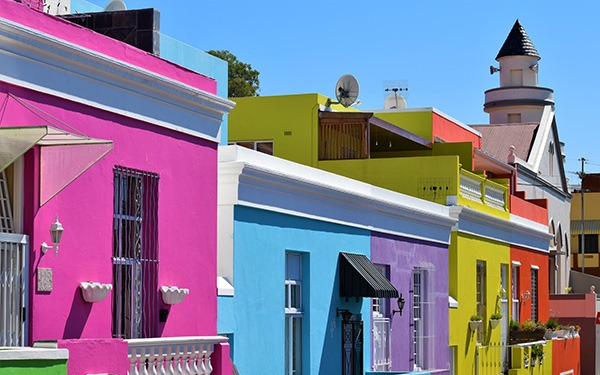
Healthcare
The public health service in South Africa is notoriously underfunded and under resourced, and most expats choose to opt for private healthcare.
The standard of private healthcare is excellent, but medical insurance is required to cover consultation fees and treatment costs.
Basic health insurance schemes only cover hospital care while comprehensive health insurance plans will also cover visits to your GP.
It’s important to choose your insurer wisely and ensure that you have long term cover from a company which doesn’t reserve the right to cancel policies if you have a serious illness.
Health insurance premiums can often be paid either monthly, quarterly or annually.
Schooling
If you’re arriving in South Africa with kids in tow you will have the choice of whether to send them to one of the numerous international schools, a government school, or a South African private school.
Private education is by far the most expensive option, but the standard of schooling is exceptionally high, with annual fees of around 80,000 rand — even higher for some international schools.
At around 30,000 rand per year public school fees are significantly lower, and these schools nevertheless offer a good standard of education.
Popular Areas for Brits
Cape Town
One of the world’s most beautiful cities, Cape Town has the lot — stunning mountain views, a vibrant waterfront, beautiful beaches, pretty gardens, world class wine and restaurants, amazing nightlife, and a wealth of outdoor adventures in the surrounding areas.
With long hot summers and mild winters the climate here is warm and the culture inviting.
This is an ethnically diverse and cosmopolitan city, and there are many expat communities here. It’s also a haven for creative types and many artists, writers, and designers have chosen to call Cape Town home.
Johannesburg
AKA Jo’burg, this is South Africa’s largest, richest — and arguably most dynamic — city.
Extremely diverse, Johannesburg is modern and forward thinking, and a melting pot for numerous different cultures.
Shopping is a major pastime here and the city is littered with swanky malls, markets and boutiques. There are a wealth of museums and art galleries to visit, and well as lush botanical gardens and the Lion Park just 45 minutes out of town.
A strong ‘going-out’ culture makes it easy to mingle with the locals, and there are plenty of cool rooftop bars and top notch restaurants where you can while away your evening in style.
Durban
If you love sun, sea and sand, you’re sure to love Durban on South Africa’s east coast. South Africa’s largest port is here, and the city’s beaches attract surfers from all over.
The newly revamped waterfront is made up of a wonderful mix of shops, pubs, restaurants and luxury accommodation, and the state of the art Moses Mabhida Stadium boasts exceptional views across the city and a giant big swing.
uShaka Marine World has one of the largest aquariums in the world — as well as featuring water rides, restaurants, and a shopping mall.
Durban is also home to the large Indian community, and there is a distinctly Asian vibe to the city, as well as an excellent selection of Indian restaurants.
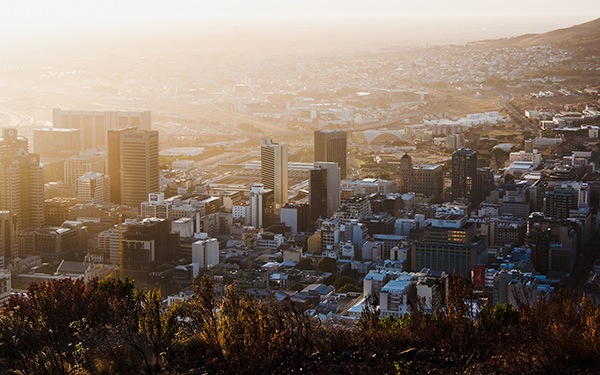
Cape Town
Garden Route
Not a city but the glorious stretch of southeastern coastline running between Cape Town and Port Elizabeth, the Garden Route is nothing short of spectacular.
The climate is incredibly mild, and seaside towns in this area are considered to be some of the safest in South Africa.
This area offers myriad landscapes including breathtaking beaches and coastal walks where it’s possible to spot whales, seals and sharks, rugged mountains, lagoons, mysterious caves, dense forests, and big game reserves.
It’s also one of the country’s best areas for wine production, and top quality vineyards abound.
The commercial heart of the Garden Route is George, a pleasant, fast growing city with good transport connections and a large choice of restaurants and excellent golf courses.
Port Elizabeth
This laid back city is well known for its wonderful beaches which offer up a host of water activities including some of South Africa’s best surf, and an abundance of marine life can be spotted in the large, sweeping Algoa Bay.
The city may not be the prettiest, but it sports some attractive heritage architecture, museums and galleries, and recent redevelopment has greatly added to the town with fashionable restaurants and cafes.
The beachfront though remains the place to be, and it’s here where you’ll find the heart of Port Elizabeth, with plenty of good restaurants, bars, and nightlife.
This is a vibrant town that is rapidly changing for the better, and it has a lot to offer British expats.

Jobs in South Africa for British Expats
Not everything in South Africa is rosy.
There is a high level of unemployment, with plenty of semi skilled and unskilled people searching for work, so competition is tough.
Businesses also have a clear bias toward hiring native workers, making things even tougher for expats looking for work.
But it’s not all doom and gloom. South African cities are rapidly expanding, and international business are on the rise.
There are also serious gaps in certain sectors and the South African government is actively seeking to employ workers skilled in these areas.
The health, travel, IT, agriculture, architecture, business, economics, and education sectors are the most lacking, and foreigners can apply for jobs in these sectors with a critical skills visa (CSV) to give them a fast track to employment provided that they have 5 years previous work experience and formal recognised qualifications.
Have you considered a move to South Africa?


